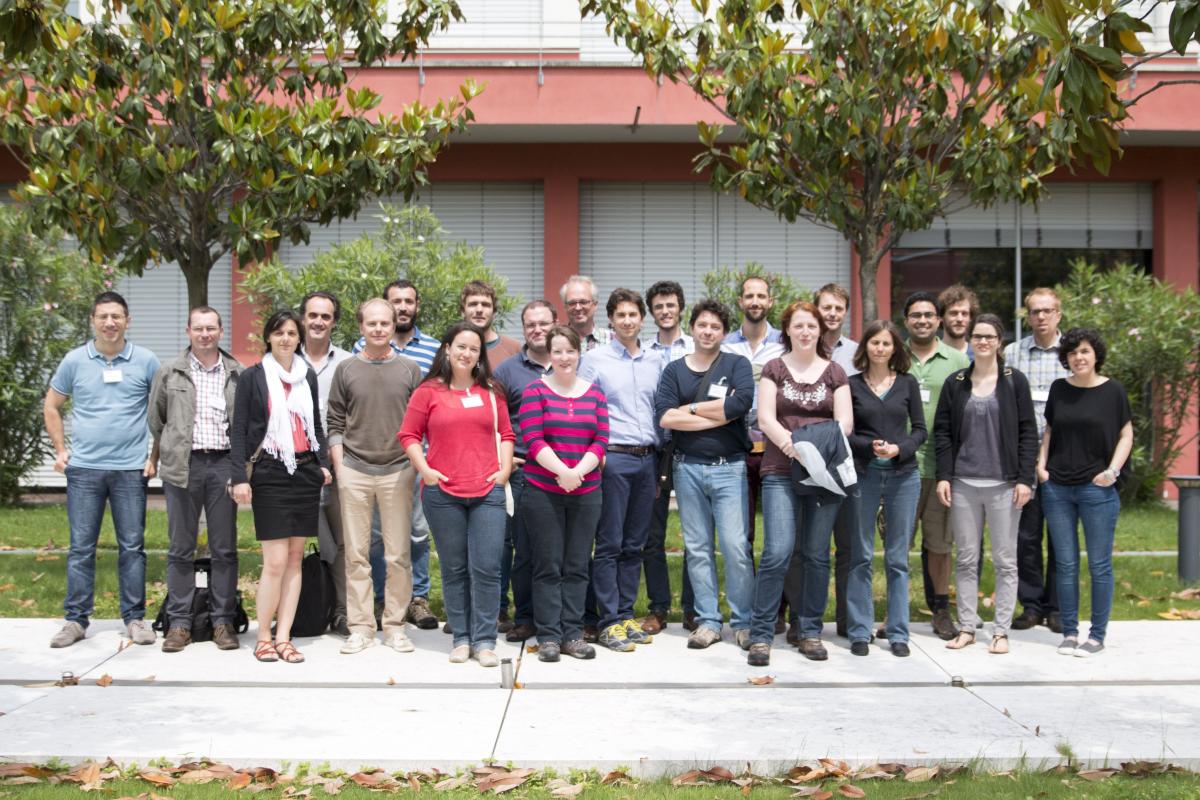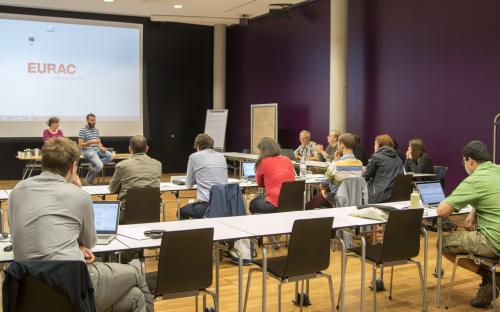EUPORIAS First Climate Services Masterclass: Energy, Tourism, Agriculture in a Changing Climate

In May 2015 the first climate service masterclass of EUPORIAS took place at EURAC’s headquarters in Bolzano, Italy. The school, aimed at professional and early career climate scientists, hosted students from six different countries. This first masterclass of the project focused on three key sectors: agriculture, tourism and energy. Alongside lectures delivered by speakers from across Europe and Australia, the students were tasked with creating three prototype climate services, in answer to real-life end-user requirements (an example for the agriculture sector is attached at the bottom of the page). Such a hands-on a formula worked well and we will replicate it in the 2016 masterclass (http://www.euporias.eu/event/masterclass2)
Programme: http://www.euporias.eu/sites/default/files/event/files/Preliminary_%20Sc...
Storify: https://storify.com/matteodefelice/euporiasmc15
Material: https://www.dropbox.com/sh/in4bvyj2hum9q1e/AABcY90-DECpWSwvaFC4SHC7a?dl=0
Feedback from students:
1. How do you rate the overall quality of the school?

2. How would you rate the general quality of the lectures?

3. How do you rate the quality of the venue?

4. Has the school addressed your training needs?

5. What is the aspect of the school that you most liked?
- Easy interaction with the organizers and the flexibility of the programme.
- The prototype were not so organised and it gave us the opportunity to learn from real situation.
- The best has been the high availability of all the lecturers and the master class organizers during all or most of the week and the fact that all days were intense and full with interesting talks. Some other training schools loose intensity and interest by the end of the week and here there has been a good balance.
- Contact with speakers.
- Personal contacts.
- Days 1,2 and 5 lectures, the interdisciplinary group, everyone's involvement, their willingness to share their time, energy and knowledge and build something great together, the impressive quality and variety of participants.
- Very good balance within the different climate services themes.
- The hands-on sessions, the interest of lecturers and organizers in the whole programme.
- R tools (and software solutions) to get climate data.
- The team-work on "real" cases.
6. What would you change?
- Registration fee covering lunch expenses: registered students will more likely come after confirming their venue. Easier planning for the staff of the Eurac café.
- It could be good if the participants would stay at the same place.
- Less is more. Less speeches in order to improve interaction within students and speakers.
- Trade some of the time spent on discussing general concepts for time spent proposing concrete solutions to various problems (e.g., how to interpret probabilistic simulation ensemble results) + associated exercises to test understanding.
- More time to work in groups.
- Do not put an entire day of lectures.
- Days 3 and 4 lectures, in my opinion too specialized and less explicitly linked to the "how to" design climate services.
- Since the master class has a multidisciplinary vocation, I would have preferred that some of the lectures centred in the scientific content were less focused in the scientific technical details and more centred in giving an overview of the current scientific knowledge on climate services, which are the next challenges being addressed and where should the research move to.
These comments have been taken onboard and are currently being used to shape the programme of 2016 edition of the masterclass (see here: http://www.euporias.eu/event/masterclass2)
7. How did you learn about this school?





